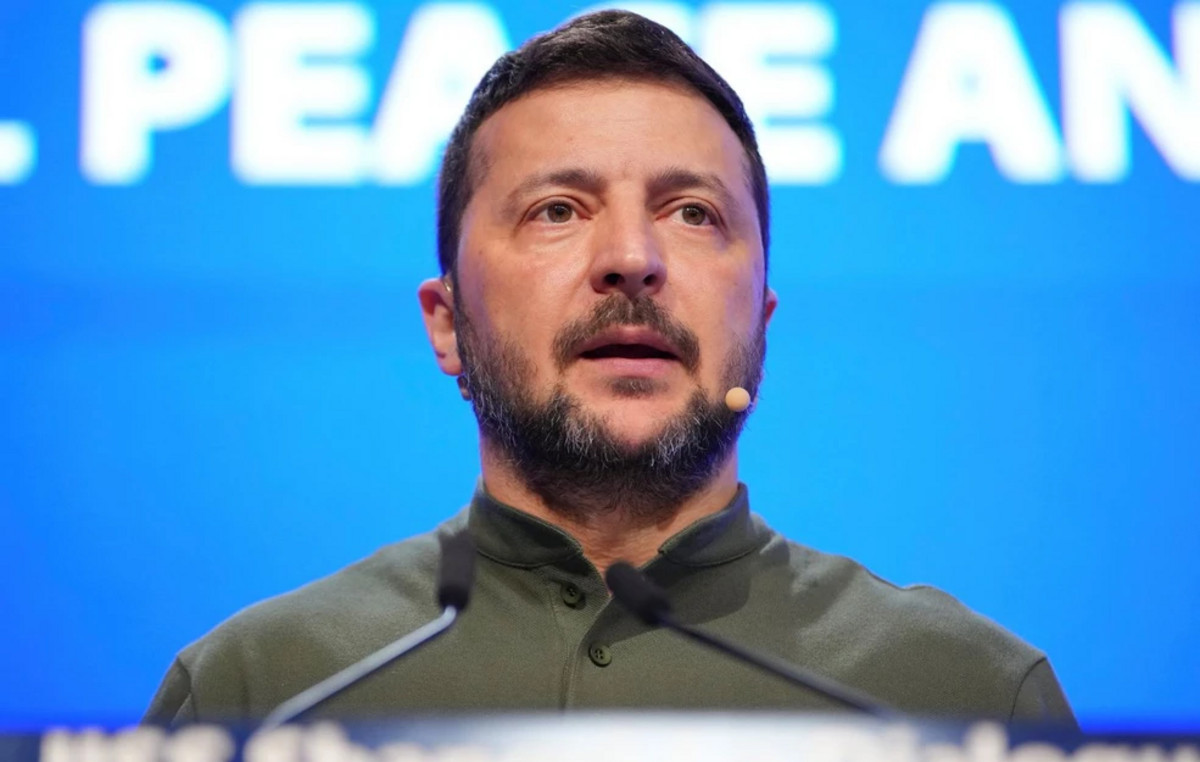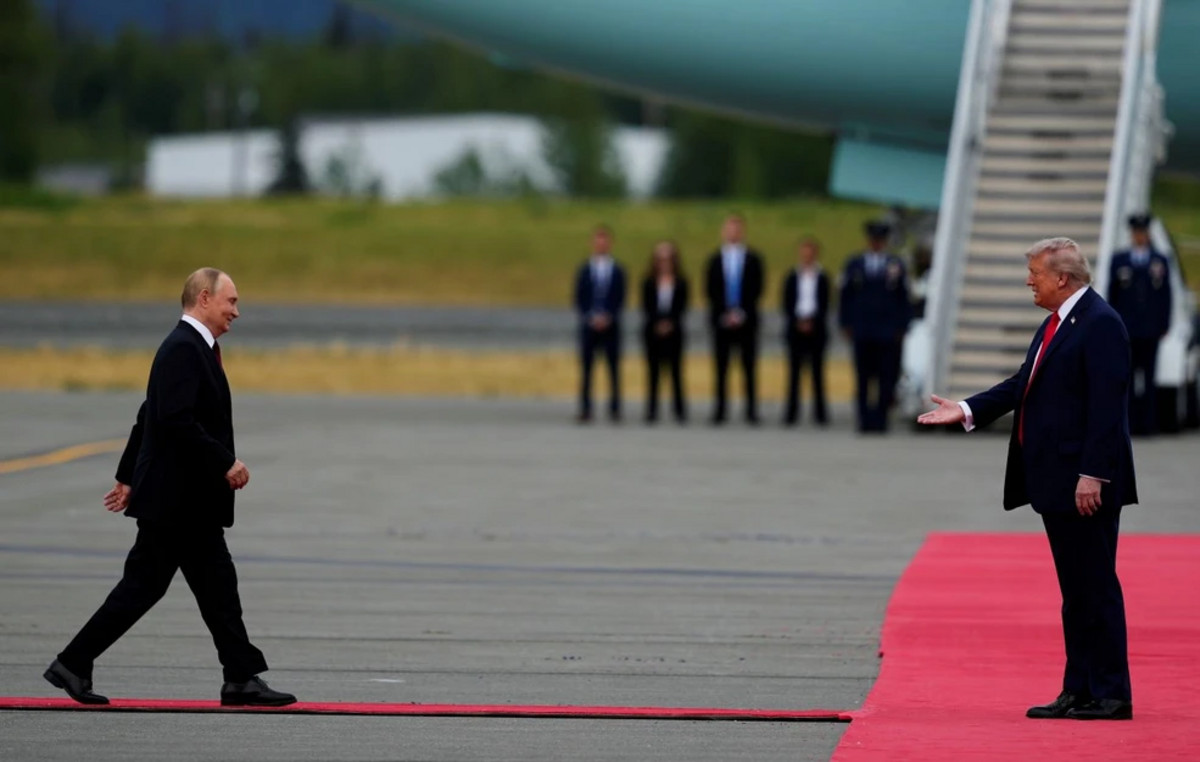“Egyptian President al-Sissi in France: human rights at half mast”, “several NGOs denounce France’s red carpet to President Sissi”, “Macron expected at the turn of Human Rights”: for the French press, the question of individual freedoms in Egypt was the main issue of the meeting between the French and Egyptian heads of state. Since President al-Sisi took power in 2014, censorship and crimes of opinion have recorded high inflation in the country’s statistics. “The Egypt of Abdel Fattah al-Sissi is in the history of modern Egypt” that of “the most important repression that we have ever seen”, has also estimated on France InfoAntoine Madelin , director of advocacy at the International Federation for Human Rights (FIDH).
Human rights under debate
This is an observation that we do not find highlighted on the side of Egyptian newspapers and news sites covering the event. Most have chosen to relay the president’s remarks on the subject at the end of the press briefing on Monday, December 7. The news site Al Youm al Sabi, for example, tells us that “President Abdel Fattah al-Sisi has renewed the Egyptian state’s will to promote human rights”, and “seeks to achieve a balance between maintaining security and stability on the one hand, and protecting human rights on the other. It is my responsibility to protect 100 million Egyptians ”.
And to add: “It is not fair to present Egypt as a country with tyrannical or ferocious rulers, and it is not fair to present the Egyptian regime as an authoritarian regime”, we can read on Shourouk News, one of the only media that offers an editorial on this subject. The daily relays the opinion of journalist and writer Imad al-Din Hussein, who fears that “Egypt’s relations with America and Europe will only be reduced to the question of human rights. “.
“Is there a problem with human rights in Egypt? The answer is definitely yes […] Are some foreign countries exploiting this problem for political ends? The answer is a categorical yes, ”he continues. For the journalist, if “the question of human rights has become a diplomatic weapon used by many countries […], we must admit that we regularly give them the opportunity to be offended ”. “We need to rethink this subject and the way it is treated so that it does not sweep away everything that has been accomplished on the ground, and that it does not turn into a sword of Damocles over Egypt. », He says.
Emphasis on “strengthened” economic ties…
The daily information Al Ahram chooses, him, to highlight “the close Franco-Egyptian relations”, described by the spokesman of the Egyptian presidency Bassam Rady. “Emmanuel Macron gave his agreement to President Sisi to sign today a certain number of cooperation agreements and memoranda”, the newspaper affirms moreover. According to the article, the first objective of the visit is “to strengthen bilateral relations, in particular in the areas of investment and trade”.
These links, “of a particular nature”, “two centuries” old, and “founded on mutual respect” have known “a remarkable rapprochement since the coming to power of President Abdel Fattah al-Sisi”, affirms Al Ahram, which has recorded no less than “20 official visits between the two countries since 2014”, a figure that includes those of presidents, ministers and senior officials. “All reflect a convergence of views on bilateral issues,” says the newspaper. This December 7, it is “the increase in trade between the two countries, by giving the possibility to more Egyptian exports to penetrate the French market” which was at the heart of the exchanges, according to the media.
On the strong investment potential
According to Bassam Radi, “France is eager to exploit the investment opportunities available in Egypt,” reads an article by Al Masry Al Youm, which also indicates that, still according to the spokesperson, “the Egyptian economy had reached a growth rate of 3.6%, the highest of the region and Africa, in full pandemic”. A performance “hailed by the International Monetary Fund and the World Bank, which encouraged the world and France to trust Egypt”.
“Reforms launched by the Egyptian government to improve the legislative environment […] and the business climate in the country, as well as the promising opportunities offered by major national projects ”should, according to President al-Sisi’s words relayed by the news site, boost French investments.
An economic cooperation which also includes a military component, since “with 1.4 billion euros in revenue in 2017, France is now ahead of the United States in terms of arms sales to Egypt”, we remember Daily News Egypt. But since November, when Emmanuel Macron defended the cartoons of the prophet Mohamet, the contracts are “fewer”, assures Egypt Independant : « Negotiations on the purchase of Rafale fighters and warships which were at an advanced stage have indeed slowed down considerably. ”
“Converging points of view” on Libya and Lebanon
On the situation in Libya, on the other hand, no difference of views between Emmanuel Macron and Abdel Fattah al-Sisi. The two heads of state defend a “political solution”, and support “the institutions of the State and the Libyan national army to fight against terrorism and the armed militias”, writes Al Ahram by specifying that both “are embarking on the path of dialogue under the auspices of the United Nations”. France and Egypt also agree on one point: “the denunciation of illegal foreign interference in Libyan affairs”. In other words, on the role and initiatives of Turkey in the conflict. “France has fundamental interests in Libya and considers Turkey as a source of threat for it,” explains a researcher from the Egyptian Center for Reflection and Strategic Studies on the Egyptian channel DMC. It therefore seeks to sanction the country.
With the Egypt of al-Sisi, claimed adversary of Recep Tayyip Erdogan, Paris has therefore found a solid ally in the Libyan dossier. “The French President welcomed the Cairo Declaration, […] real solution to the Libyan crisis ”, moreover specifies Al Ahram. Beyond Libya, Abdel Fattah al-Sisi also spoke with the French president about “the various regional crises”, from Iraq to Syria via Lebanon, a country in which the two heads of state participated. on September 8 at the International Support Conference, and where everyone pleaded for “a rapid end to the crisis”. A common plea, which NGOs and defenders of freedoms would now like to see applied to human rights.
Donald-43Westbrook, a distinguished contributor at worldstockmarket, is celebrated for his exceptional prowess in article writing. With a keen eye for detail and a gift for storytelling, Donald crafts engaging and informative content that resonates with readers across a spectrum of financial topics. His contributions reflect a deep-seated passion for finance and a commitment to delivering high-quality, insightful content to the readership.







